q1,q2,q3 and q4 are point charges located at point as shown in the figure and s is a spherical Gaussian surface of radius R. Which of the following is true according to the Gauss's law
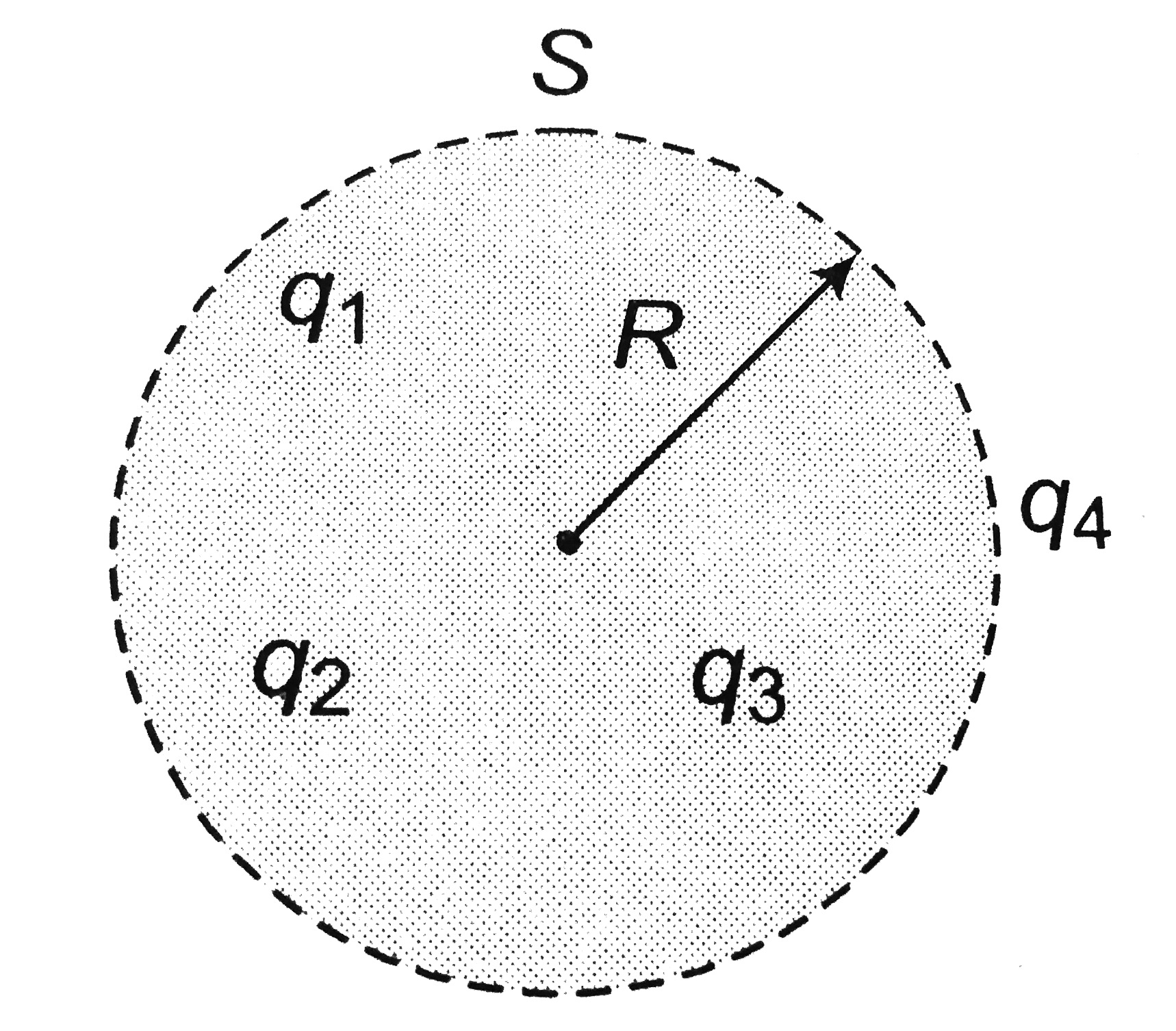
∮s(E1+E2+E3).dA=q1+q2+q32ε0
∮S(E1+E2+E3).dA=(q1+q2+q3)ε0
∮S(E1+E2+E3).dA=(q1+q2+q3+q4)ε0
None of the above
The correct Answer is:D
Step by step video, text & image solution for q_(1),q_(2),q_(3) and q_(4) are point charges located at point as shown in the figure and s is a spherical Gaussian surface of radius R. Which of the following is true according to the Gauss's law by Physics experts to help you in doubts & scoring excellent marks in Class 12 exams.
Topper's Solved these Questions
- BOOK - DC PANDEYCHAPTER - ELECTROSTATICSEXERCISE - Taking it together105videos
ELECTROSTATICS
- BOOK - DC PANDEYCHAPTER - ELECTROSTATICSEXERCISE - Assertion and Reason15videos
ELECTROSTATICS
- BOOK - DC PANDEYCHAPTER - ELECTROSTATICSEXERCISE - Check point 1.410videos
ELECTROSTATICS
- BOOK - DC PANDEYCHAPTER - ELECTROSTATIC POTENTIAL AND CAPACITORSEXERCISE - (C) Chapter exercises50videos
ELECTROSTATIC POTENTIAL AND CAPACITORS
- BOOK - DC PANDEYCHAPTER - GRAVITATIONEXERCISE - All Questions120videos
GRAVITATION
Similar Questions
A point charge +q is held at a distance R from the centre of an uncharged spherical conductor of radius a(a<R). Calculate the potential of the conductor in the presence of q.
View SolutionRefer to the arrangement of charges in Fig and a Gaussian surface of radius R with Q at the centre. Then
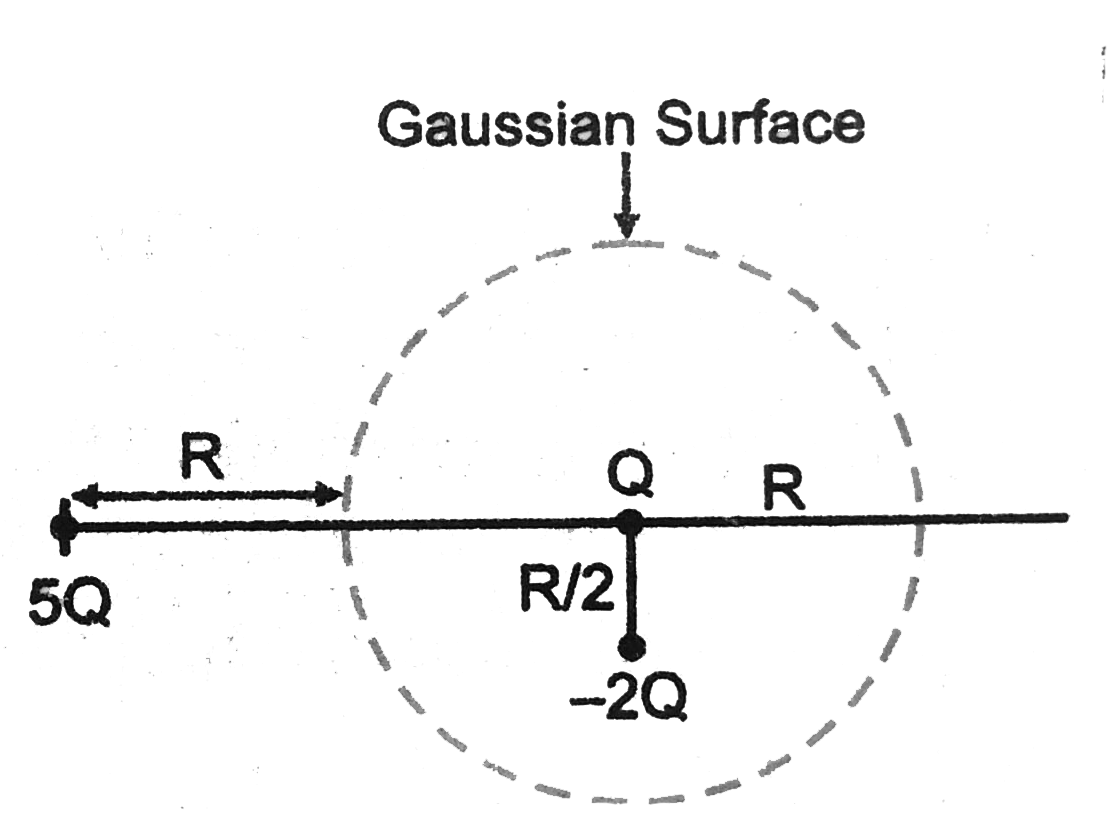 View Solution
View Solution
Knowledge Check
- Question 1 - Select One
The value of charge q1,q2andq3 as shown in the figure are
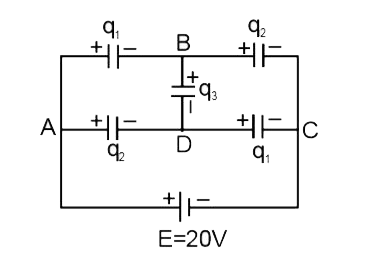 Aq1=32μC,q2=24μC,q3=−8μCBq1=48μc,q2=16μC,q3=+8μCCq1=32μC,q2=24μC,q3=+8μCDq1=3μC,q2=4μC,q3=+2μC
Aq1=32μC,q2=24μC,q3=−8μCBq1=48μc,q2=16μC,q3=+8μCCq1=32μC,q2=24μC,q3=+8μCDq1=3μC,q2=4μC,q3=+2μC - Question 2 - Select One or More
A point charge +Q is place just outside an imaginary hemispherical surface of radius R as shown in the figure. Which of the following statements is/are correct ?
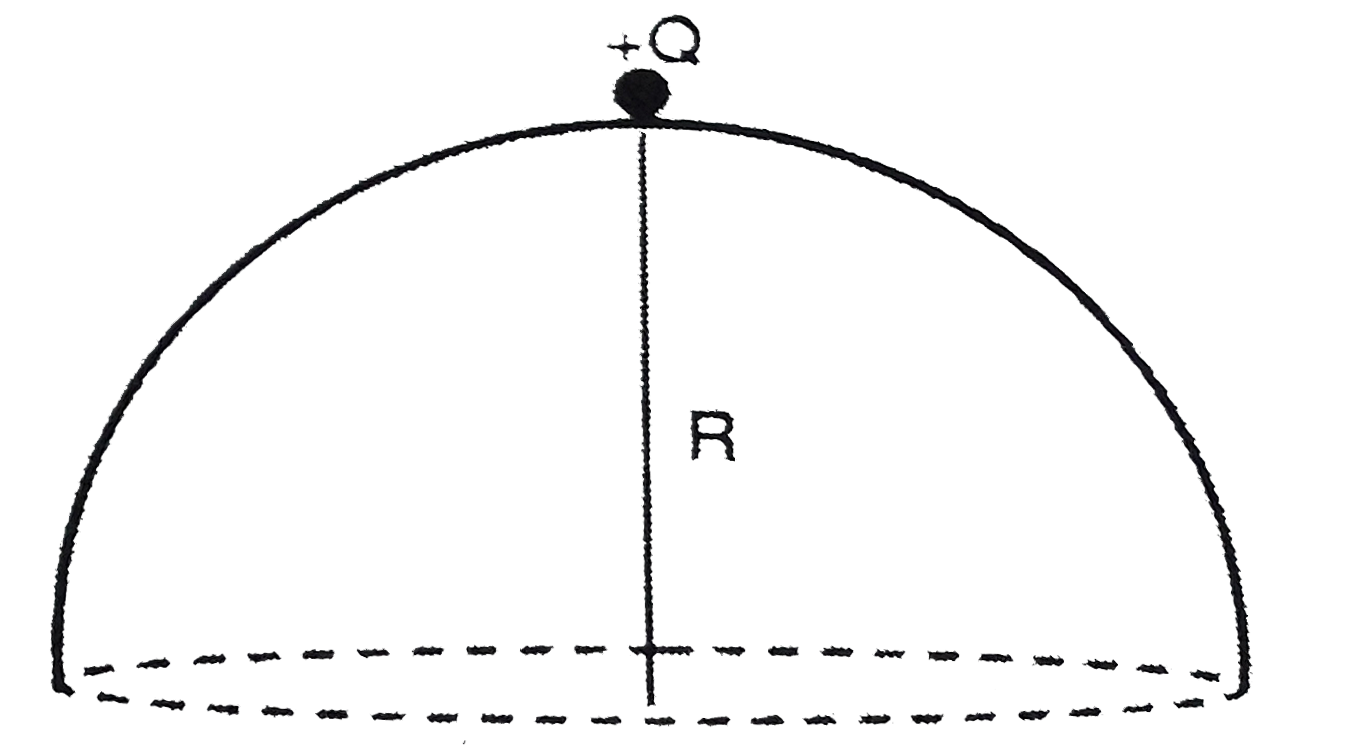 ATotal flux through the curved and the flat surface is Qε0BThe component of the electric field normal to the flat surface is constant over the surfaceCThe circumference of the flat surface is an equipotentialDThe electric flux passing through the curved surface of the hemisphere is −Q2ε0(1−1√2)
ATotal flux through the curved and the flat surface is Qε0BThe component of the electric field normal to the flat surface is constant over the surfaceCThe circumference of the flat surface is an equipotentialDThe electric flux passing through the curved surface of the hemisphere is −Q2ε0(1−1√2) - Question 3 - Select One
five charge q1,q2,q3,q4and q5 are fixed at their positions as shown in figure .s is Gaussian surface .The Gauss's law is given by ∮→E.→ds=qε0
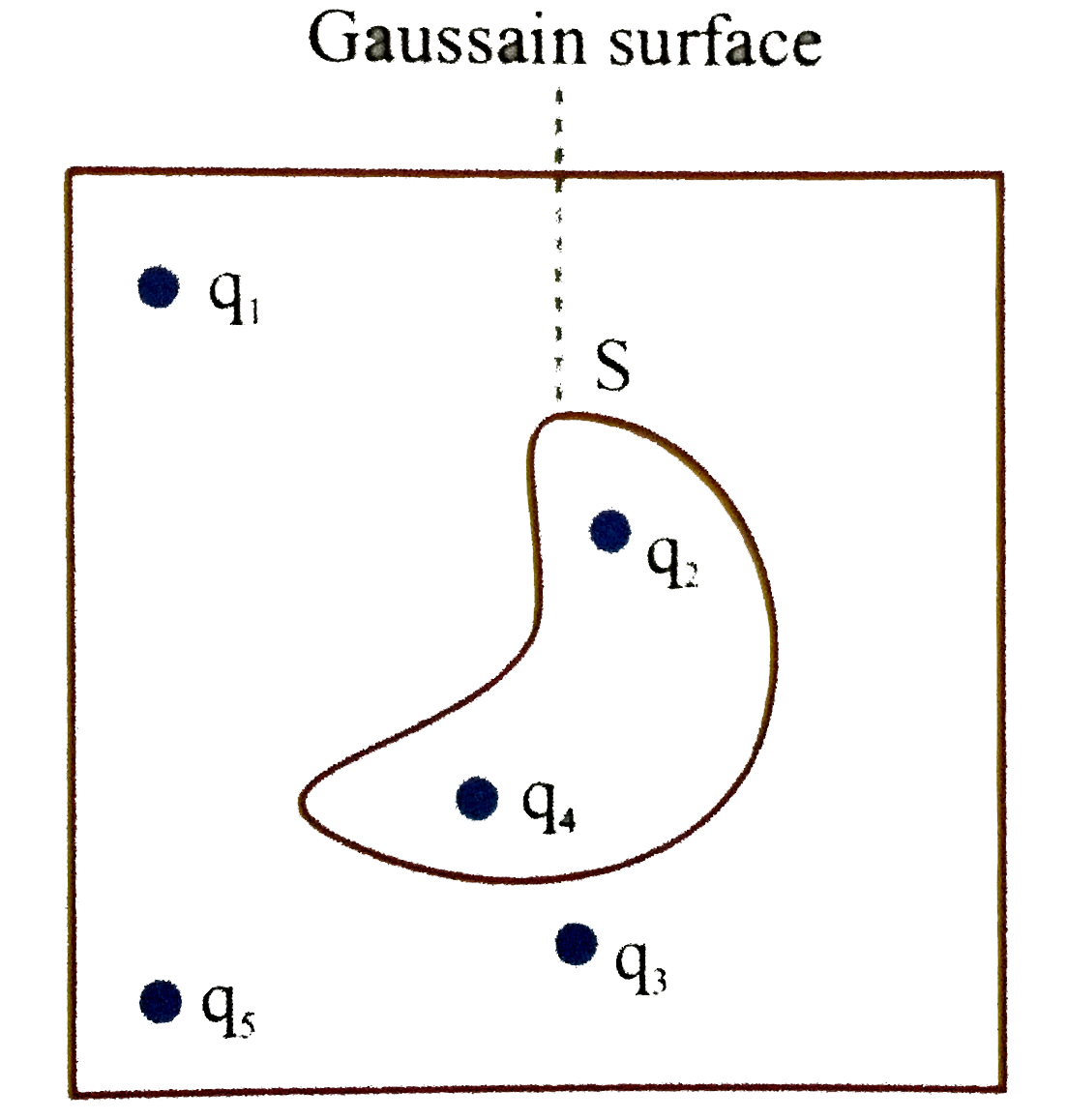
Which of the following statement is correct?A→E on the L.H.S of the above equation will have a contribution from q1,q5,and.q3 while q on the RHS will have a contribution from q2 and q4 only.B→E on the LHS of the above equation will have a contribution from all charges while q on the RHS will have a contribution from q2 and q4 only.C→E on the LHS of the above equation will have a contribution form all charges while q on the RHS will have a contribution from q1 q2 and q5 only.DBoth →E on the LHS and q on the RHS will have a contribution form q(2) and q4 only.
A charge Q is enclosed by a Gaussian spherical surface of radius R, If the radius is doubled, then the outward electric flux will
View SolutionA charge Q is enclosed by a Gaussian spherical surface of radius R. If the radius is doubled, then the outward electric flux will
View SolutionConsider Gauss's law
∮→E⋅→ds=qε0
Then, for the situation shown in figure at the Gaussian surface
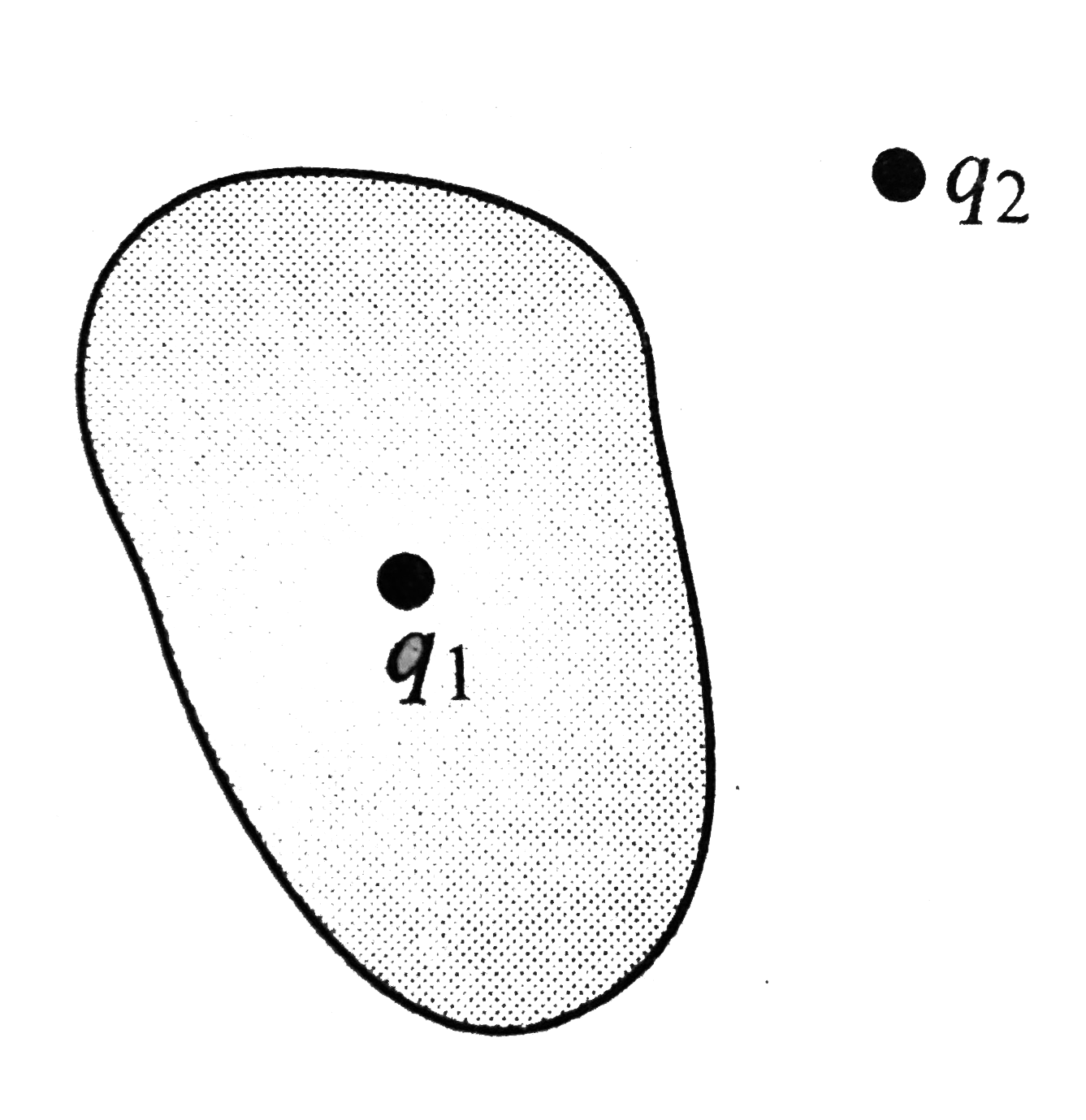 View Solution
View SolutionThree charges −q1,+q2 and −q3 are placed as shown in the figure. The x-component of the force on −q1 is proportional to
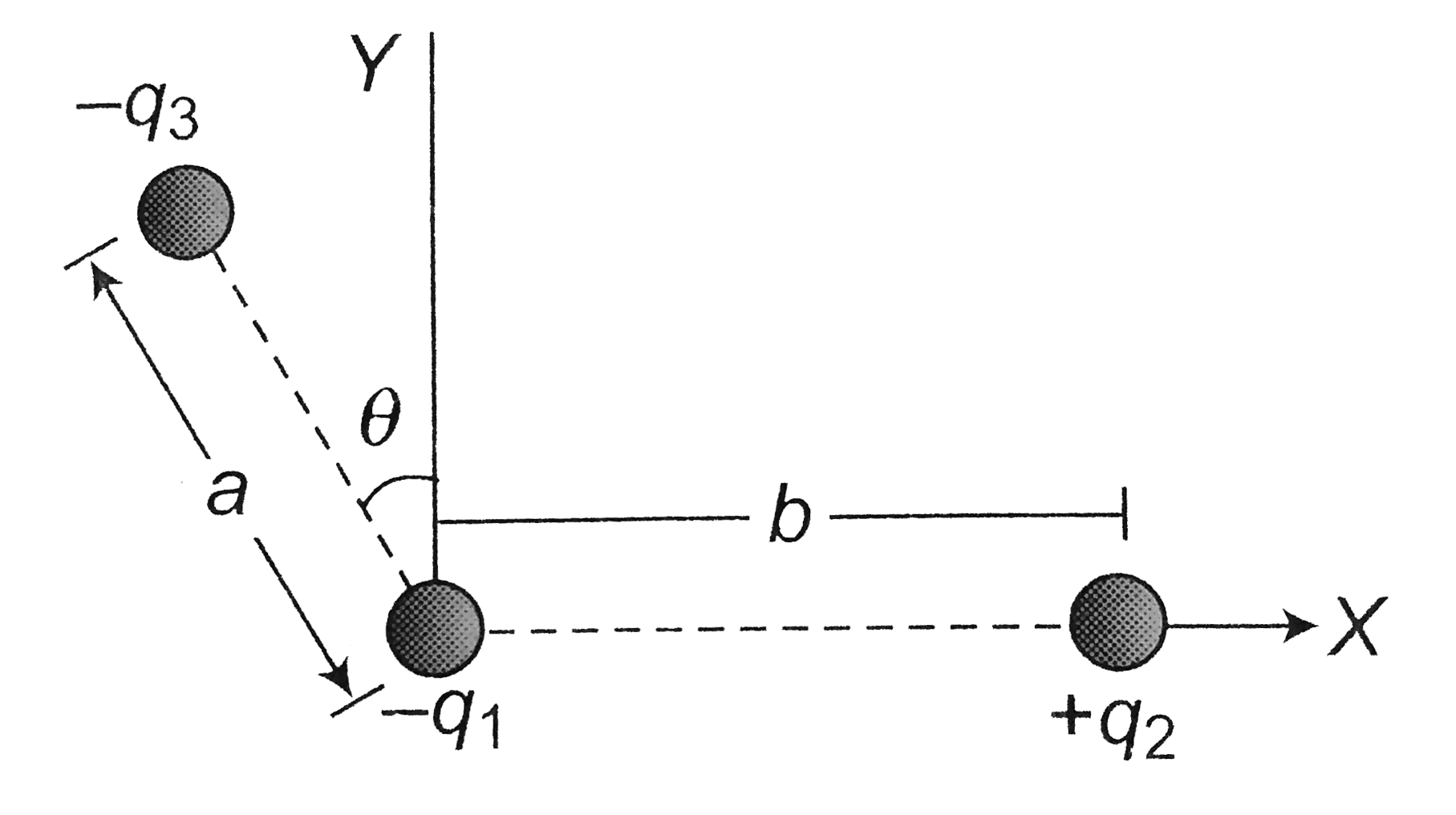 View Solution
View SolutionThree charges +q, +q, +2q are arranged as shown in figure. What is the field at point P (center of side AC)
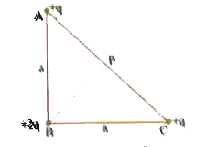 View Solution
View Solution

